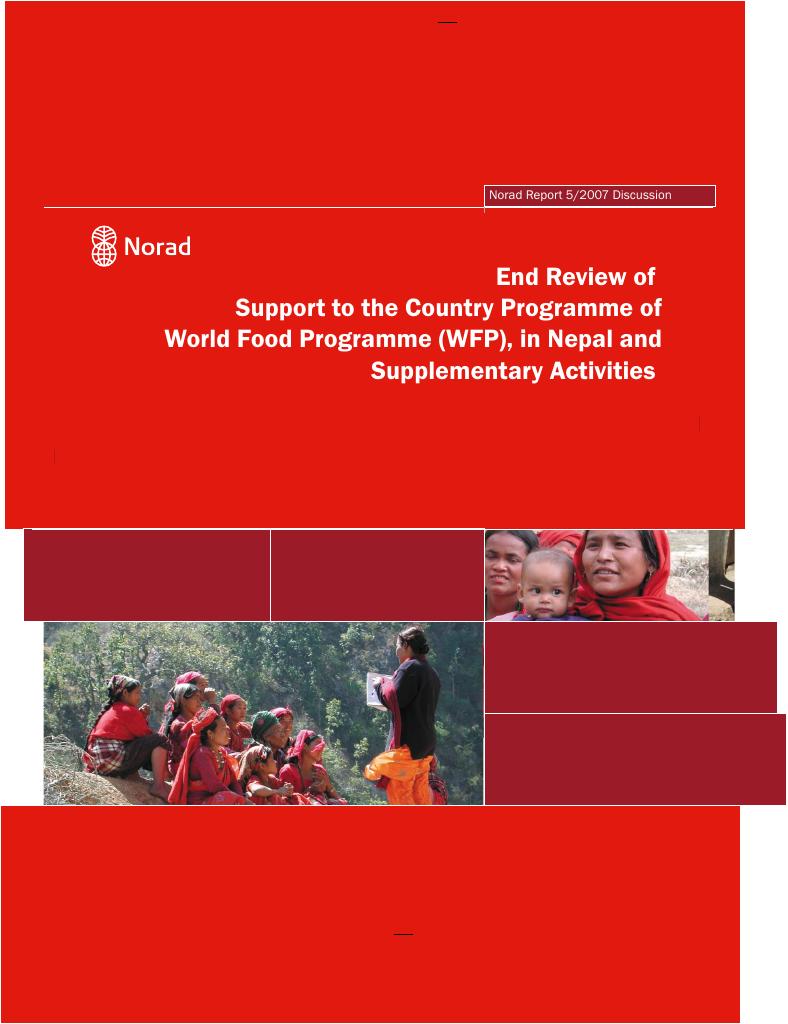Evaluering
End Review of Support to the Country Programme of World Food Programme in Nepal and Supplementary Activities
The report gives an introduction to the actual situation in Nepal, the WFP country programme and the Norwegian rationale for supporting this programme during its phase 1 and 2. Based on the focus chosen by the team for the End Review, five main issues are discussed: • sustainability • targeting • social mobilisation • accountability and transparency • conflict sensitivity. WFP Country Programme in Nepal could in the midst of the armed conflict present remarkable results related to the number of beneficiaries in the most remote areas of the country, the increased attendance to primary education, in particular of girls, the decrease in anaemia and other nutritional related deficiencies among newborn children and their mothers. The programme is complex, with several major components covering Food for Work (FfW), Food for Education (FfE) and Mother and Child Health Care (MCHC). A number of partners have been involved, both from the UN-family, the government and the national and international civil society. The overall objective has been to strengthen food security. The targeting aim at reaching the most marginalised and excluded within the population, with a particular focus on women. There is a general understanding that WFP has been able to implement the programme without severe interruptions related to the conflict in Nepal, a remarkable achievement knowing that the areas for programme implementation were the main areas controlled by the Maoists, heading 10 years of armed insurgency against the government in Kathmandu.
